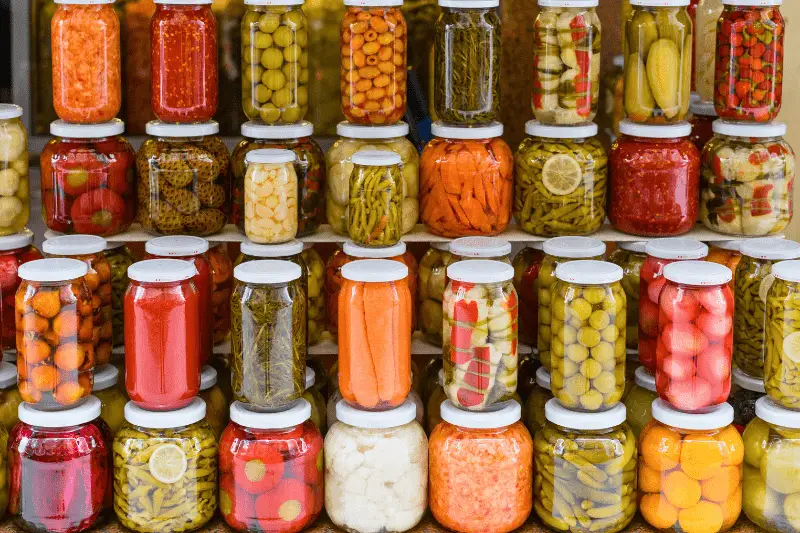Pickles have been a favorite way of preserving vegetables for centuries.
From dill pickles to bread and butter pickles, there’s no shortage of ways to enjoy these tangy treats.
However, it’s essential to store homemade pickles correctly to avoid spoilage and ensure they maintain their crunchiness.
In this blog post, we’ll discuss the best ways to store homemade pickles, covering different types of pickling methods from canned to fermented. Let’s get started!

Storing Homemade Pickles After Opening
Once you’ve opened a jar of homemade pickles, it’s essential to refrigerate them immediately.
Opened jars should be eaten within a relatively short space of time since they may begin losing their crunchiness after being exposed to air.
Typically opened jars of homemade pickles are fresh for about a month in the refrigerator.
One way that you can tell if your leftover pickle has gone bad is by checking its color- brownish or moldy-looking spots are indicators that it has spoiled.
Proper Sealing Technique for Homemade Pickles
Proper sealing techniques can increase the shelf life of your homemade pickles significantly.
The use of mason jars with two-part lids made specifically for canning is an excellent choice for sealing your pickled veggies safely.
To seal your jar, you need first to sterilize it by boiling in water or putting in the dishwasher (if dishwasher-safe).
Once sterilized, place hot brine into jars leaving ¼ inch headspace at the top before attaching lids tightly with bands – avoid over tightening as it could cause leaks.
Storing Canned Pickles After Opening
Canned pickle containers should be stored like any other opened jar- in the fridge!
Refrigerated canned pickled products last much longer compared with unopened ones that can remain on room temperature shelves until ready for use.
Once opened, they should be eaten within two weeks. Pay attention to the smells of canned pickles- if they have an off odor, it’s a sign of spoilage.
Storing Fermented Pickles Correctly
Fermented pickles differ from other types of pickling in that they require careful storage in a separate container in the fridge.
They are highly susceptible to spoilage and need to be kept submerged in brine to maintain their crispness.
A great option for storing fermented pickles is by using a fermentation crock or large glass jar with an airlock lid.
Fermentation crocks allow carbon dioxide created during the fermentation process to escape while keeping out unwanted air.
Choosing the Right Storage Location for Pickle Jars
When storing pickle jars, it’s important to choose a location that is cool, dark, and dry as these conditions will prevent mold growth and help preserve your pickles’ crunchiness.
Ideal storage locations include pantries or closets where there’s not too much light exposure.
Tips for Keeping Pickle Jars Clean and Fresh
It’s vital when storing homemade pickles that you use nonreactive containers and lids when possible.
Non-reactive containers won’t react with acidic vinegar solution used in pickle-making prevents metal corrosion.
If you’re reusing old jars for your homemade pickle making process, clean them thoroughly before using them again.
This will prevent cross-contamination from any bacteria left behind from previous usage.
Also, date your jars so that you know how long ago you made them.
There are different methods used when making homemade pickled veggies- preserving through canning or fermentation – but it’s essential always to store them correctly!
Storing pickle jars properly ensures optimal freshness and taste by preventing spoilage and keeping their crunchiness intact.
Ensure you use appropriate sealing techniques (use mason jars), refrigerate opened jars immediately after each use (lasting in the fridge for up to a month), and store your pickles in a cool, dark, dry place (like a pantry).
Avoid spoilage by properly labeling and cleaning jars before reusing them.
Following these simple tips will make sure you can enjoy your homemade pickles for months on end!
